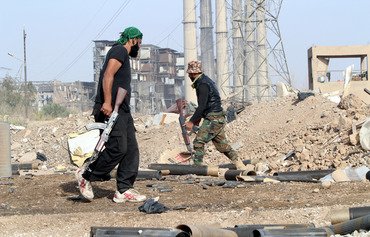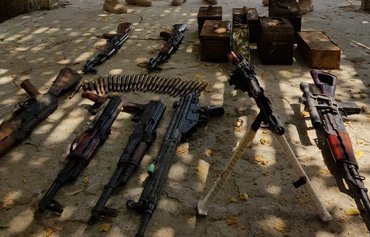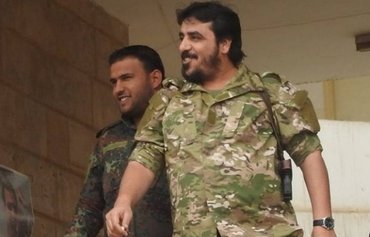Iraqi officials and tribal leaders speaking with Diyaruna accused members of armed militias affiliated with the Islamic Revolutionary Guard Corps (IRGC) of threatening southern Iraq's security and stability by selling weapons to third parties.
They said instead of turning ISIS's leftover weapons in to the Iraqi army, they transfer them from western and northern provinces to Baghdad and southern provinces, where they sell them.
The law in Iraq dictates that any leftover weapons from the ISIS era be turned in to the military in order to be destroyed.
Tribal conflicts and criminal activity have noticeably increased over the recent period in Baghdad, Basra, Dhi Qar and Maysan. According to the Iraqi police, four Iraqis were killed and at least 10 others wounded in tribal clashes in areas south of Baghdad last month.
The Iraqi police arrested 11 individuals after one such incident in Maysan province, which killed one person and injured another.
A senior official at the Ministry of Interior who spoke to Diyaruna on the condition of anonymity said one of the main reasons for the increase in crimes in Baghdad and southern Iraq is that IRGC-supported militias "are flooding these areas" with remaining ISIS weapons, referred to as "dirty weapons".
Militias seize these weapons and move them to southern provinces and Baghdad, where they sell them at very low prices, he said. For instance, an AK-47 sells for 250,000 dinars (about $200), or a single bullet sells for 400 dinars (35 cents).
The weapons are sold to tribes, organised crime gangs and suspected drug trafficking networks, he said. Recently, criminal investigations have revealed that murder, theft and armed robbery suspects have obtained weapons from elements of militias known to be linked to Iran.
Militia members take advantage of their Popular Mobilisation Forces (PMF) ID cards to transport weapons and ammunition and sell them in Baghdad and southern Iraq, the official added.
'Uphill battle of confiscating arms'
Sheikh Ali al-Khafaji, a tribal leader in Dhi Qar province, told Diyaruna the weapons seized from ISIS now threaten the security of southern regions and have become "a new form of terrorism by unruly militias".
The Ministry of Interior faces an uphill battle in seizing and confiscating leftover weapons, he said.
Kataib Hizbullah, al-Nujaba, Saraya al-Khorasani, Jund al-Imam, Sayed al-Shuhada, Asaib Ahl al-Haq and Badr militias have been selling stolen weapons to support themselves, security affairs expert retired Brig. Gen. Saad al-Hadithi said.
Al-Hadithi attributed the development to the IRGC's inability to finance the militias, which drives them to support themselves by selling weapons and drugs and extorting investors.
He told Diyaruna that despite directives issued by the Iraqi government in January 2017 on ISIS remnants of arms and ammunition -- which should be handed to the army -- militias use PMF vehicles and ID cards to transport and sell them.
Some militia members have also lately started transporting weapons from Syria to sell in Iraq, he said, in another sign of the IRGC's dwindling funding.
Maj. Gen. Tahseen al-Khafaji, spokesman for the Joint Operations Command, told Diyaruna security forces are continuing efforts to confiscate weapons and recently achieved success in Baghdad and Basra.
However, he said, accumulated over several decades, the volume of leftover weapons and ammunition in Iraq is greater than anticipated.
Al-Khafaji said a number of people engaged in illegal arms trade have been arrested and referred to the judiciary in accordance with Article 111 of Iraq's Penal Code. He did not mention when the arrests were made.

![Employees display rifles for sale at a gun shop in the Iraqi capital Baghdad on September 22nd, 2020. IRGC-affiliated militias are accused of illegally transporting and selling weapons, causing an increase in crime and tribal conflict in Baghdad and southern Iraqi provinces. [Ahmad al-Rubaye/AFP]](/cnmi_di/images/2020/11/10/26932-iraq-weapons-militias-600_384.jpg)






